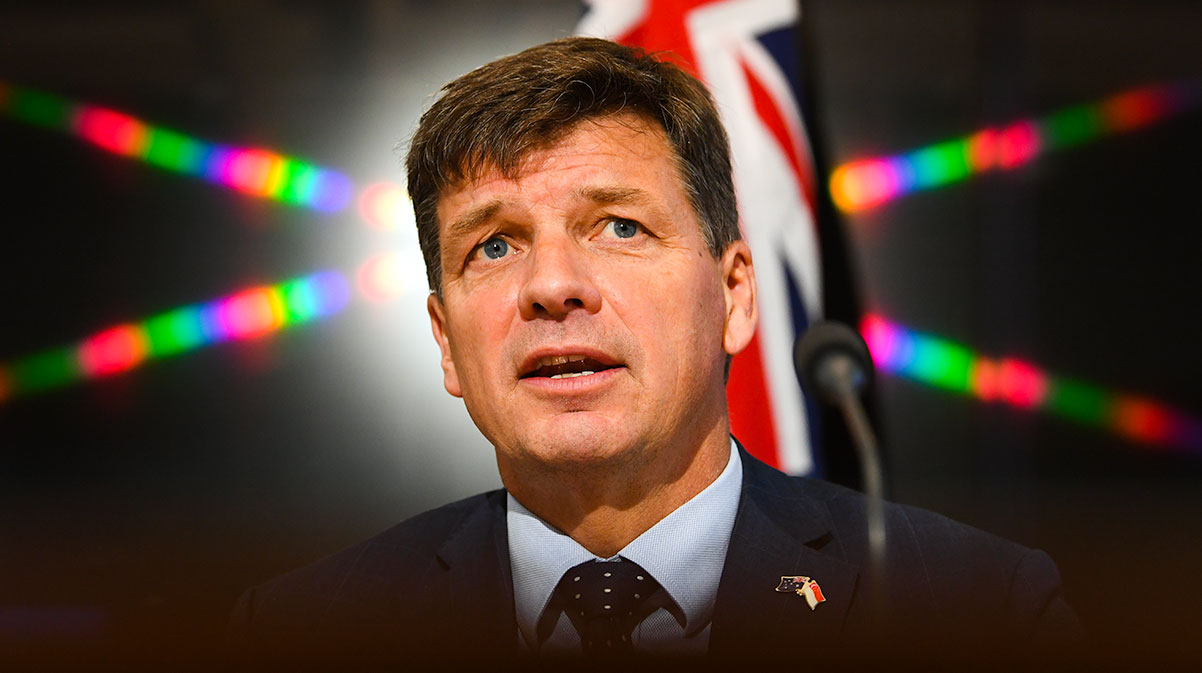Australia and other climate laggards may face a “ratchet” mechanism that will put pressure on them to do more on short-term emission cuts, according to draft proposals being considered at the COP26 climate talks in Glasgow.
Negotiators are considering ways to apply further pressure to countries that have refused to strengthen 2030 targets, or have fallen short of their fair share of financial support, including at a fresh round of world leaders meetings being considered as early as COP27 next year.
Federal energy and emissions reduction minister Angus Taylor said on Sunday that his time in Glasgow had come to an end, just as most ministers arrived to help solve the difficult issues that emerge in the second week of negotiations.
Taylor’s departure leaves Australia without ministerial representation for the remainder of COP26, during a week when ministers generally carry forward negotiations as the conference deals with most of the contentious issues on which negotiators have so far been unable to reach an agreement.
Taylor’s role at the talks appeared to focus mostly as a support role for prime minister Scott Morrison, to push the domestic talking points around “technology not taxes”, and to announce a major investment in carbon capture and storage.
He described COP26 as a success, indicating that the Morrison government at least thinks it has done enough to ward off substantial criticism of Australia’s weak emissions reduction targets and a lack of policy detail around how those targets would be met.
But international environmental groups have described the Morrison government’s rhetoric as hollow, awarding Australia three “fossil of the day” awards – a honour reserved for the countries “doing the most to do the least” – during the first week of COP26.
Australia is so far the only country to receive more than one of the daily awards.
Proposals being considered by COP26 negotiators indicate that countries like Australia could face renewed pressure to strengthen their emissions targets – including the 2030 target that the Morrison government has left unchanged since the Abbott government.
The target to reduce emissions by between 26 and 28 per cent sees Australia aiming to achieve around half the emissions reductions that countries like the United States, Japan and the United Kingdom are aiming for, after those countries ramped up their targets ahead of COP26.
Built into the Paris Agreement is a “ratchet” mechanism that requires countries to regularly review and update their emissions reduction pledges, with the expectation that they will work to progressively strengthen their targets.
With negotiations taking a half-time break on Sunday, COP president Alok Sharma published a list of potential topics that had been flagged by negotiators for including in a final agreed decision reached in Glasgow.
The list represents somewhat of a shopping list for negotiators and will be whittled down over the next week as countries work towards a consensus position on the outstanding issues.
Notably, it includes a proposal to agree that “parties who have not yet submitted enhanced [Nationally Determined Contributions] [be] expected to do so in 2022.”
This would include Australia, which only re-communicated its same 2030 target in Glasgow.
Such an agreement would see Australia face fresh pressure at the next round of climate talks – expected to be held in Egypt next year – to ramp up its commitments over the next decade to help bridge the “ambition gap” that currently sees the world on track to significantly exceed 1.5 degrees of global warming.
Chair of the United Kingdom’s independent Climate Change Committee, Lord John Deben, described Australia’s performance at COP26 as a “disappointment to the rest of the world”.
“When Scott Morrison tried to explain what he was going to do between now and 2030, it was just a whole series of words,” Deben told the ABC on Monday.
“You cannot go forward without signing up to eliminating coal. We can’t go on using coal, and Australia really does have to come to terms with the fact that it’s changing my climate and the climate of the rest of the world,” Deben said.
Other issues listed on the informal ‘shopping list’ being considered by negotiators include calls for wealthy countries to provide more financial support to developing countries, recognition of the remaining gap in commitments to limit warming to 1.5 degrees and the need for countries to align both short and long term policies for tackling climate change.
There could also be agreements to hold further meetings of world leaders and annual meetings of ministers, which would focus on lifting ambition before 2030.
See also: Glasgow Brief: Australia called a “fossil”, yet again, as Angus Taylor leaves COP26










